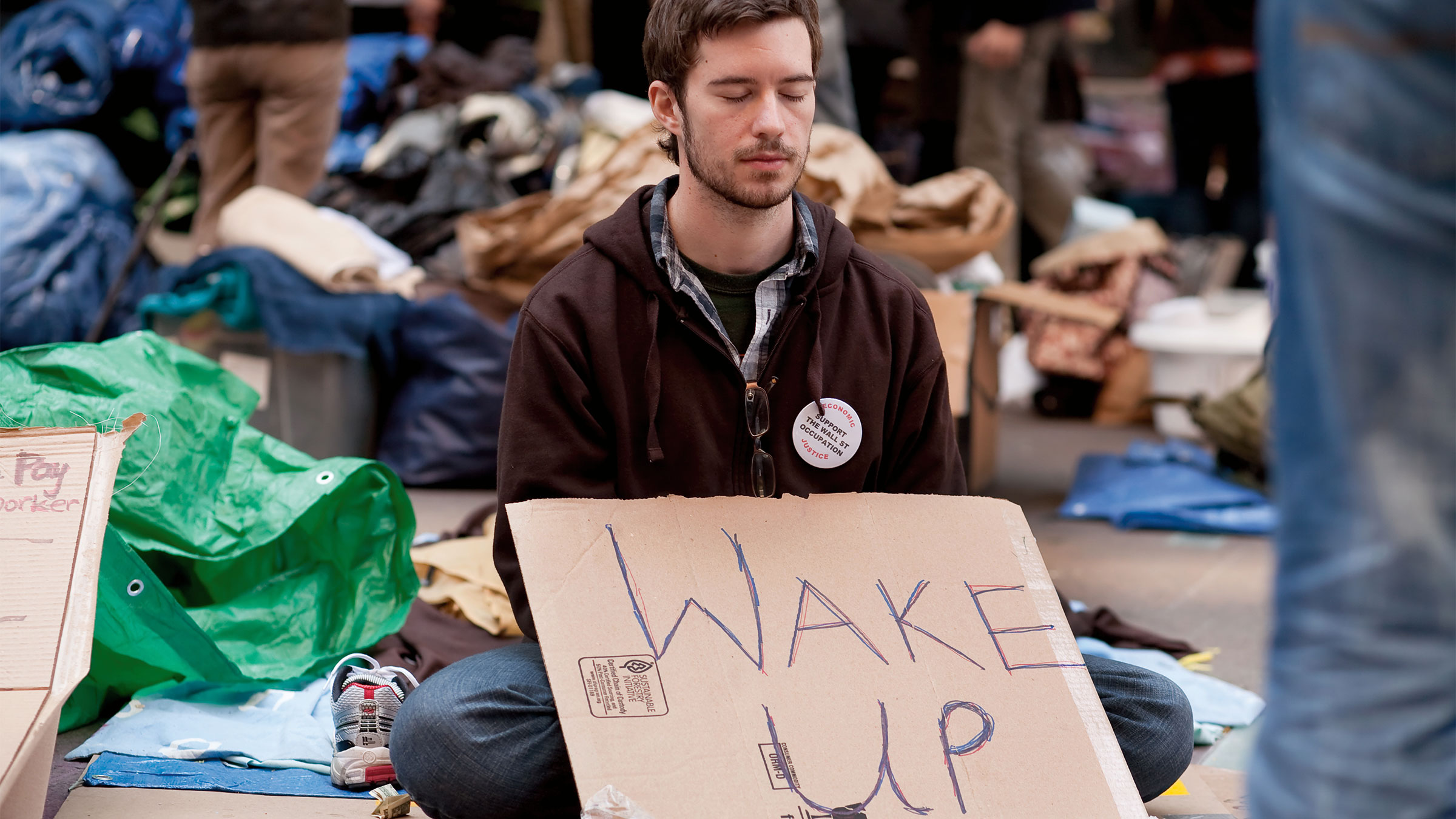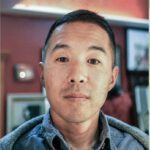On November 8, 2016, I was at work, furiously refreshing my web browser for news about the U.S. presidential election. This was supposed to be a landslide, and although the day was still young, the initial returns were unbearably inconclusive. I could not tolerate the uncertainty, and I was acting as if my obsessive clicking would tilt the results. But if anything, it had the opposite effect, and my stomach tightened with each refresh.
A coworker walked over and tried to reassure me: “Stop it—go home. Whatever happens, we’ll get through this.”
So, I logged off, got in my car, and started driving. Along the way, I scanned the radio for news that would assuage my fears, but there was none. My stomach kept tightening.
Four years later, on November 7, 2020, I was going for a morning jog. Cars were honking everywhere, and a mob of marchers approached. At this point in my life, I had no idea what was going on in the world because I’d shut myself off from it. I was ignoring all news, social media, even my own friends and family, because I didn’t want to hear anything about politics. I didn’t think I could bear the heartache, so I was content to live in ignorance. When I finally realized who had won, I shrugged and thought, “Like it matters.”
“What can you do? What is your next step?”
It’s now 2024, and the next election is nigh. My anxiety rises with each moment. The knot in my stomach has returned.
The thing about anxiety is that it hurts. It literally hurts: the chest tightens, the neck aches, the stomach clenches. That’s why avoidance is so common—we turn away, and we get to relax. But the relief is short-lived.
Much of my anxiety comes from not knowing what to do. There’s so much information out there that is contrary to my perception of reality. At this point, I have little patience for blithe equivalences, i.e., the idea that “everyone is entitled to their own truth.” So, I want to push back and do the “right” thing, but what exactly is that? Vote? Not vote? Canvas? Protest? What if I do the wrong thing?
I’m a psychotherapist by training, and I advise my clients all the time to cope with anxiety by examining their thoughts and behaviors (the cognitive behavioral approach). Clearly my own avoidance and overcontrolling have not reduced my suffering in any meaningful way, and thoughts, such as the following, haven’t helped much either:
My person has to win. Everything would be better if my person won.
People on the other side are so stupid. They’re all evil.
Politicians are all the same. The system is rigged. It’s hopeless.
These thought patterns align with the ancient Buddhist concept of the kleshas, or unwholesome mental states: raga (attachment, in this case to a candidate); dosa (aversion, in this case to people with positions I don’t like); and moha (ignorance of reality or delusion).
In contrast, thoughts free of mental hindrances might look something like this:
My person will not end my suffering. The political pendulum has swung back and forth throughout time, and there’s much work to do no matter who wins.
No one is purely good or evil. We’re all a complicated mess, and we all want what we think is best. Judgment keeps me in a cycle of suffering.
I can do what is within my control.
That last one is especially important. As the late Korean Buddhist teacher Seung Sahn used to say, “Put it all down,” and “Only go straight.” In other words, examining thoughts is good and well, but it can be tiring. So, put them down once in a while. This doesn’t mean suppress them (which rarely works anyway), but rather relax the incessant clenching. Problems aren’t going away any time soon, and our nervous systems could use the occasional rest in order to function properly.
Wisdom and compassion can then emerge from this place of ease, so that we’re able to see more clearly and ask, “What’s next?” with less delusion. The policies passed by the next administration will affect all of us, especially the most vulnerable among us, in very real and serious ways. As teacher/activist Pablo Das noted years ago, the idea that “we” will all “get through this,” however comforting, goes against the evidence of history—especially when you consider who usually says things like that and how much privilege they tend to have. Many people have not “gotten through” it. To wish it were any other way is to put an unrealistic “demand on reality,” as the psychologist Marsha Linehan put it.
Fighting, fleeing, and freezing are all understandable urges in the face of political anxiety. But then what? You can vote, but what else can you do? “Only go straight” sometimes means putting thoughts aside so that they’re not in the way, and then focusing on what’s in front of you.
In a classic kong-an, the renowned meditation master Namcheon holds up a cat and threatens to kill it unless one of his disciples can give him an appropriate response. The question is the same for us: What can we do when confronted with suffering? What do we do when suffering is happening right in front of our eyes?
The consequences of this election can feel paralyzing, but the therapist in me recalls that since everything is always changing, everything has a cause and effect, which means that every development will result in new responses and resistances. What I do or say, no matter how big or small, can make a difference.
So, do it. Don’t overthink it. Do what comes next.
I may make some missteps along the way, and I may come into tension with those who disagree with me. But I trust that my wisdom and compassion will bend my actions toward the arc of justice.
What can you do? What is your next step? This is very confusing. And yet, at the same time, it is very clear. Only go straight.
A final kong-an: “The whole universe is on fire. Through what kind of samadhi can you escape being burned?”

